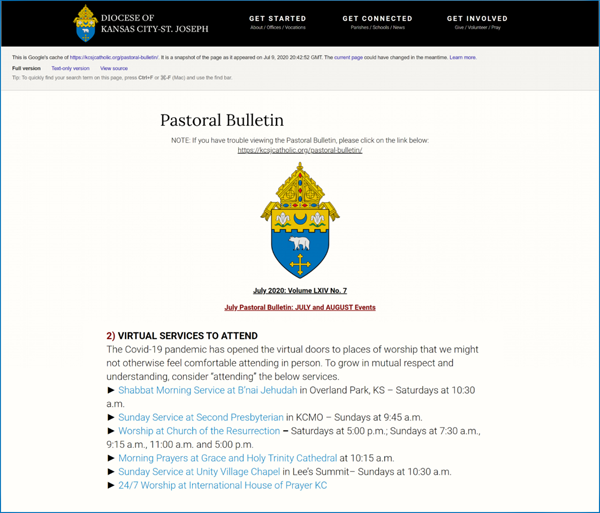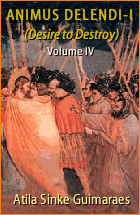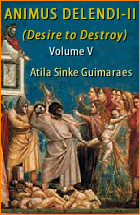Documents for your files
 |
PROGRESSIVIST DOCUMENT OF THE WEEK
Jewish, Protestant & Pantheist Services
Replacing Catholic Mass
Replacing Catholic Mass
In its July Bulletin the Diocese of Kansas City issued an invitation to its Catholic faithful to attend "virtual services" of Jewish, Protestant and Pantheist temples. The Bulletin is signed by Vicar General Fr. Kenneth Riley on behalf of Bishop James Vann Johnston.
Under the pretense of “growing in mutual respect and understanding,” the Diocese suggested attending various temples of false religions. At the top of the list was a Jewish temple, followed by various Protestant and pantheist sects – Presbyterian, Episcopal, Methodist, Unitarian Universalist and another “generic” Protestant temple.
One of them – the Unity Village Chapel – is a kind of Universalist Unitarian denomination that preaches a “cosmic Christ consciousness,” which leads them to a type of pantheist belief.
This Bulletin – with the list of where to virtually attend the “services” of false religions – was available on the Diocesan website at least until July 10. It raised a heated reaction on Twitter. As the uproar grew, the page was promptly taken down. Days after, the Diocese managed to remove it also from the cached version on Google.
Below, we present to our reader a snapshot of the invitation, which can be found under the section From the Office of Ecumenical Inter-Religious/Ecumenical Relations at the end of the Bulletin.
A PDF copy of the entire Bulletin can be found here.

Under the pretense of “growing in mutual respect and understanding,” the Diocese suggested attending various temples of false religions. At the top of the list was a Jewish temple, followed by various Protestant and pantheist sects – Presbyterian, Episcopal, Methodist, Unitarian Universalist and another “generic” Protestant temple.
One of them – the Unity Village Chapel – is a kind of Universalist Unitarian denomination that preaches a “cosmic Christ consciousness,” which leads them to a type of pantheist belief.
This Bulletin – with the list of where to virtually attend the “services” of false religions – was available on the Diocesan website at least until July 10. It raised a heated reaction on Twitter. As the uproar grew, the page was promptly taken down. Days after, the Diocese managed to remove it also from the cached version on Google.
Below, we present to our reader a snapshot of the invitation, which can be found under the section From the Office of Ecumenical Inter-Religious/Ecumenical Relations at the end of the Bulletin.
A PDF copy of the entire Bulletin can be found here.
















